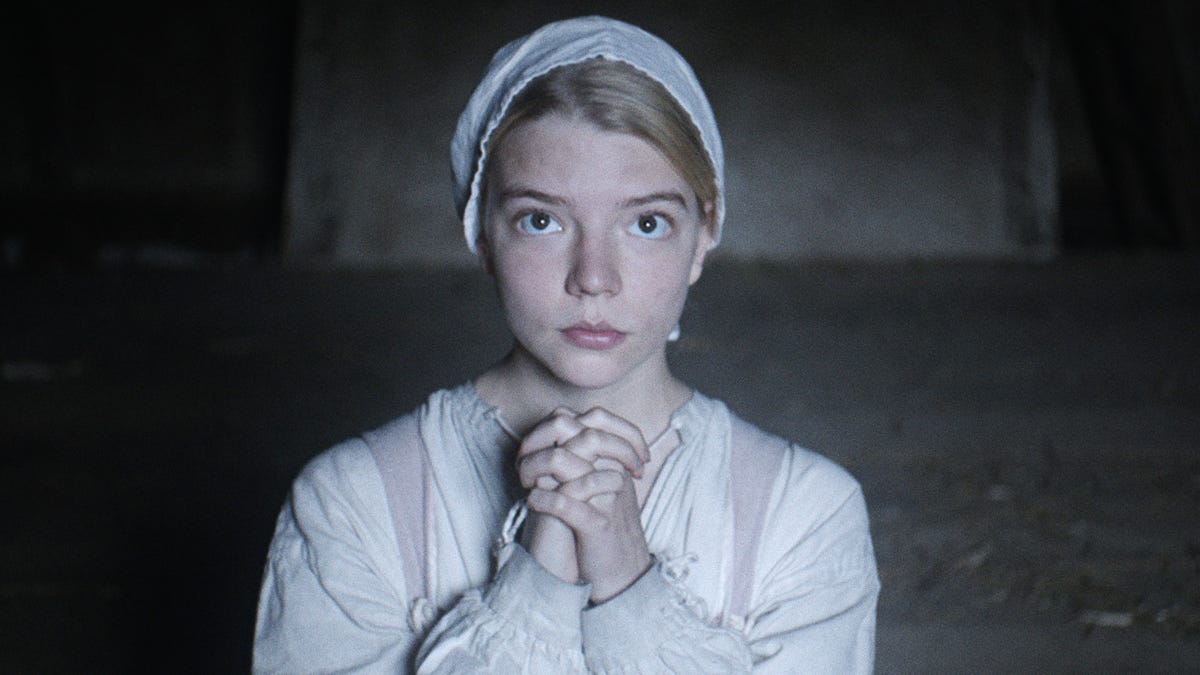Oscars almost never nominate horror flicks, but they should
When you look closely at the numbers, and the larger history of the industry, the only explanation is bias.

Another year, another list of Oscar nominations. And yet again, as with most years in the history of the Academy Awards, not a single horror movie has been nominated.
Sure, the dearth of award-winning horror flicks is nothing new, but as the genre continues to turn out excellent art, it's becoming harder and harder to justify the lack of awards recognition. Before diving into the numbers, here are some of the best horror flicks of 2016 that didn't receive any recognition from the Academy and should have.
"Boo!"
"The Witch." This movie was flat-out spectacular, and we'll probably be seeing its breakout star Anya Taylor-Joy in a lot more movies very soon. Its cinematography, which relied heavily on natural light, would've felt at home in a Stanley Kubrick movie like "The Shining," and its script creatively incorporated primary sources to capture the zeitgeist of early puritan America. "The Witch" should have been nominated for best original screenplay.
"Green Room." This tight flick keeps the scale small and the tension high. Add a clever script and killer supporting work from Patrick Stewart as a neo-Nazi hunting down members of a punk band, and you've got a unique thriller. This was also one of up-and-comer Anton Yelchin's last movies before his untimely death, and it represents one of his best contributions to the medium. Jeremy Saulnier should have been nominated for best director, and Yelchin should have been considered for best actor.
"Don't Breathe." Sure, this movie's a little more of a genre-pic than the other two, relying on jump scares, exploitation and a clear baddie (the engaging Stephen Lang). But "Don't Breathe" benefits from quietly brilliant cinematography. Nearly the whole movie takes place inside a small home, which the camera maps out in a single shot at the beginning to give viewers a clear sense of the space the characters occupy, and their options at every turn. 2016 was a strong year for cinematography, but this was as good as (if not better than) many of the nominees.
"Green Room" was one of the best movies of 2016.
OK, but the question is, did any of these flicks actually deserve awards or nominations? Everyone gets snubbed now and again, right? And any film buff worth their salt can come up with half a dozen Oscar snubs in the last two years alone.
Let's look at the numbers: In 2016, six of the top 100 grossing movies of the year were horror flicks, and 23 of those top 100 were nominated for an Oscar in at least one category. Even if the Academy chose those 23 nominees randomly, they'd have only a 20 percent chance not to pick a single horror movie.
But it wasn't just this year. The last time a horror movie was nominated for an Oscar was 2011, with "Black Swan" (which is arguably a psychological thriller, anyway). The chance of that consistency occurring unintentionally is less than one-thousandth of 1 percent.
Oscar nominees aren't just drawn out of a hat, though; the system's a meritocracy. Maybe the experts just don't consider horror flicks to be that good. But in 2016, the average Rotten Tomatoes critical score for those top six horror movies was 82 percent. That's about 10 percent lower than the average for the best picture nominees, and significantly higher than the average for most other genres.
The discrepancy isn't just in the numbers. Many of the best directors working today have delved into horror to great effect. The original "Alien" trilogy alone reinforced the early promise of three industry giants: Ridley Scott ("Gladiator"), James Cameron ("Titanic") and David Fincher ("The Social Network").
Tons of other directors have used the genre to cut their teeth, like Sam Raimi ("Evil Dead" to "Spider-Man"), Scott Derrickson ("Hellraiser: Inferno" to "Doctor Strange") and Peter Jackson ("Dead Alive" to "LOTR").
Plus, Kubrick, Roman Polanski and Alfred Hitchcock all made famous horror flicks during their lauded careers -- and none of them won a single Academy Award for them ("The Shining" wasn't even nominated).
How can you say "no" to those faces?
Arguably the only true horror film to receive multiple major Oscars was "The Exorcist," which received the recognition it did because director William Friedkin's "The French Connection" had won best picture and best director statues two years before.
When you look closely, the best explanation for horror movies getting so consistently snubbed at the Oscars is just plain old bias. And before you say it's only an awards show, the Academy canonizes film in a way nothing else can. For instance, "Crash" might not be a great film, but it'll long be included on lists of best picture winners that blooming fans often reference for recommendations.
So it's a real loss when great movies, like recent horror gems "Let the Right One In," "The Babadook" and "It Follows" are left to slip into history, unrecognized and unremembered. And perhaps as much of a loss: the trend that pressures talented filmmakers in the genre to migrate away if they ever want critical acclaim.
Batteries Not Included: The CNET team shares experiences that remind us why tech stuff is cool.
CNET Magazine: Check out a sampling of the stories you'll find in CNET's newsstand edition.

